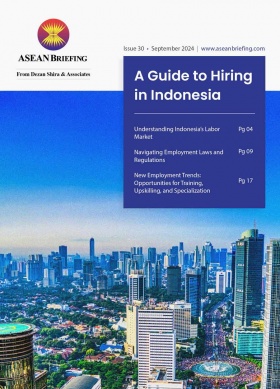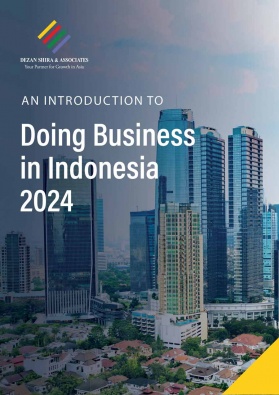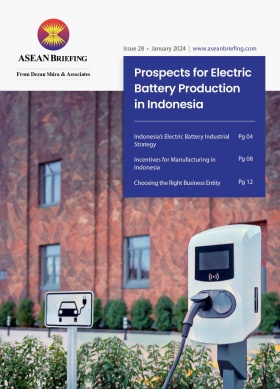Indonesia’s iPhone 16 Ban and Apple’s Investment Dilemma
Indonesia’s recent ban on Apple’s iPhone 16 sales has drawn significant attention to its domestic content requirements, highlighting a pivotal moment in the country’s industrial policy. With over 168 million smartphone users in 2023, Indonesia ranks as the fourth-largest smartphone market globally, after China, India, and the United States. Despite this, Apple has struggled to capture a significant share of this lucrative market, holding only 2.2 percent as of September 2024. Local competitors like Oppo (17 percent), Samsung (16.4 percent), and Xiaomi dominate, accounting for nearly half of the market.
Adding urgency to this dispute, Apple sold 2.1 million phones in Indonesia in 2023, but its continued access to this fast-growing market is under threat. The country’s TKDN (Tingkat Komponen Dalam Negeri) policy, which mandates that 35 percent of components in electronic devices be locally sourced, is at the center of the sales ban. Apple’s initial US$100 million investment proposal to meet the requirements was deemed inadequate, prompting the company to consider increasing its investment tenfold.
What is Indonesia’s TKDN Policy?
Indonesia’s TKDN policy, introduced to strengthen domestic industries, mandates that a percentage of components in products sold domestically must be locally sourced. For electronic devices like smartphones, this requirement stands at 35 percent, encouraging the development of local suppliers and fostering technological capability. Beyond electronics, the policy extends to automotive, telecommunications, and renewable energy sectors, aiming to reduce dependency on imports and create jobs.
While the intent is commendable, the implementation of TKDN has proven challenging. Critics argue that the policy’s rigid requirements do not account for the complexities of global supply chains. For multinational corporations like Apple, aligning global production models with local demands is not always feasible. Apple’s reliance on established manufacturing hubs in countries like Vietnam and Thailand means it has limited capacity to meet Indonesia’s demands without disrupting its operations.
In response to the ban, Apple has reportedly offered to increase its investment in Indonesia tenfold, signaling its willingness to adapt to the country’s policies. However, this increase must translate into tangible benefits for Indonesia’s supply chain to meet the government’s expectations. Apple currently operates only one assembly plant in Indonesia, compared to its robust manufacturing presence in Vietnam, Thailand, and Malaysia.
For Apple, exploring pilot projects or training programs for Indonesian suppliers might serve as a stepping stone toward compliance while supporting the country’s industrial goals.
Apple’s investments in Indonesia and regional comparisons
Apple’s investment strategy in Southeast Asia highlights stark contrasts between Indonesia and its regional neighbors. In Indonesia, Apple’s investments are estimated at 2.8–3.3 trillion rupiah (US$176–208 million), with operations limited to a single assembly factory. This relatively modest presence is insufficient to meet the demands of Indonesia’s TKDN policy or to establish a meaningful footprint in the local economy.
In comparison, Apple’s investments in Vietnam, Thailand, and Malaysia demonstrate how strategic alignment with local conditions fosters success. In Vietnam, Apple has invested US$15.4 billion in 35 facilities, reflecting the country’s favorable regulatory environment and supply chain readiness. Thailand’s established electronics ecosystem has attracted over US$24 billion in Apple investments, focusing on components like the Apple Watch and MacBook. Malaysia, with its advanced infrastructure and reliable local suppliers, hosts 19 Apple factories, including facilities producing the M1 Mac Mini.
The disparity in investments underscores the challenges Indonesia faces in attracting large-scale commitments from tech giants. Apple’s willingness to increase its investment tenfold is a step forward, but Indonesia’s stringent TKDN requirements and bureaucratic hurdles still present barriers.
Indonesia’s place in value-added supply chains
Indonesia’s push to become part of global value-added supply chains reflects its broader industrial ambitions. By emphasizing local content requirements, the government seeks to shift the country’s role from a consumer market to a creator of technological value. However, systemic challenges, including infrastructure gaps, inconsistent policy enforcement, and the readiness of local suppliers, must be addressed for this vision to succeed.
Countries like Vietnam have shown how targeted investments in workforce training and supplier development can create a robust ecosystem that benefits both foreign investors and the local economy. Indonesia could emulate these strategies, working with companies like Apple to gradually integrate local suppliers into global supply chains.
The path forward: Balancing ambitions and realities
Indonesia’s iPhone 16 ban encapsulates the tensions between ambitious industrial policies and the realities of global business operations. With one of the fastest-growing smartphone markets in the world, Indonesia holds immense potential for companies like Apple. However, rigid enforcement of TKDN risks deterring investment and slowing the country’s integration into global supply chains. A flexible, collaborative approach is needed to bridge the gap between Indonesia’s ambitions and the needs of multinational corporations.
About Us
ASEAN Briefing is one of five regional publications under the Asia Briefing brand. It is supported by Dezan Shira & Associates, a pan-Asia, multi-disciplinary professional services firm that assists foreign investors throughout Asia, including through offices in Jakarta, Indonesia; Singapore; Hanoi, Ho Chi Minh City, and Da Nang in Vietnam; besides our practices in China, Hong Kong SAR, India, Italy, Germany, and USA. We also have partner firms in Malaysia, Bangladesh, the Philippines, Thailand, and Australia.
Please contact us at asean@dezshira.com or visit our website at www.dezshira.com and for a complimentary subscription to ASEAN Briefing’s content products, please click here.
- Previous Article Entendiendo el mercado laboral de Indonesia
- Next Article Thailand-EU FTA Set for 2025: Impact on Trade and Growth








